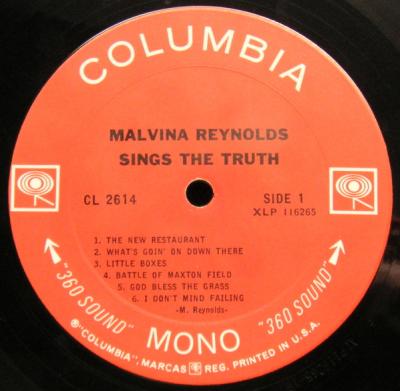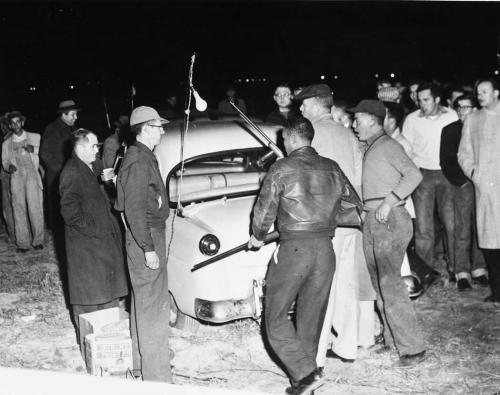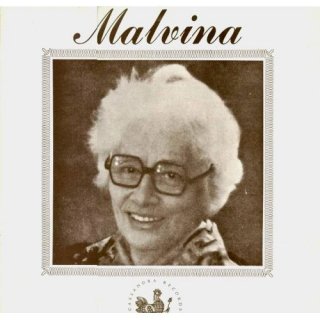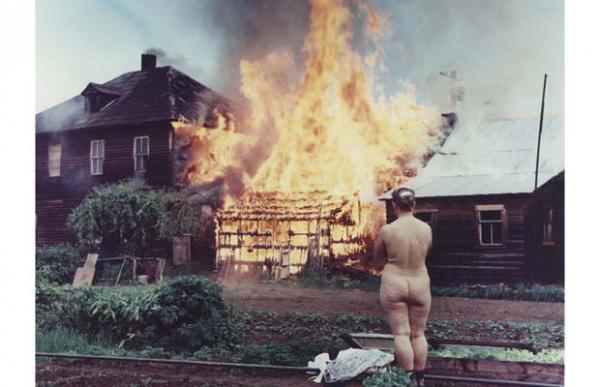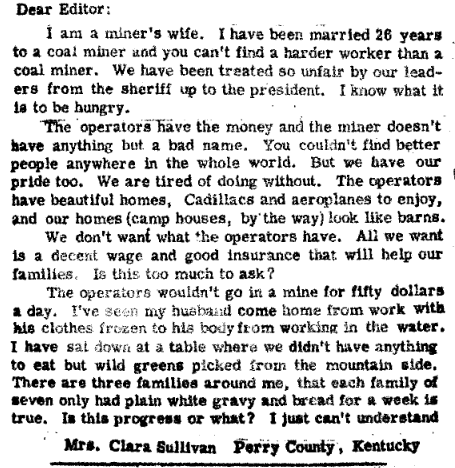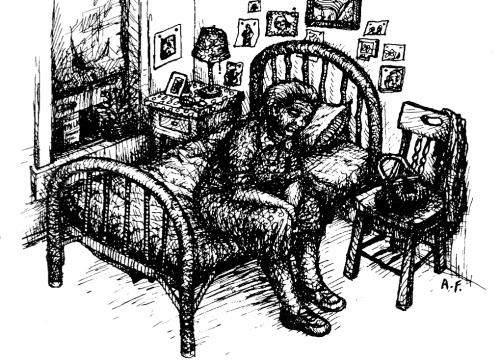It's Enough to Be Young
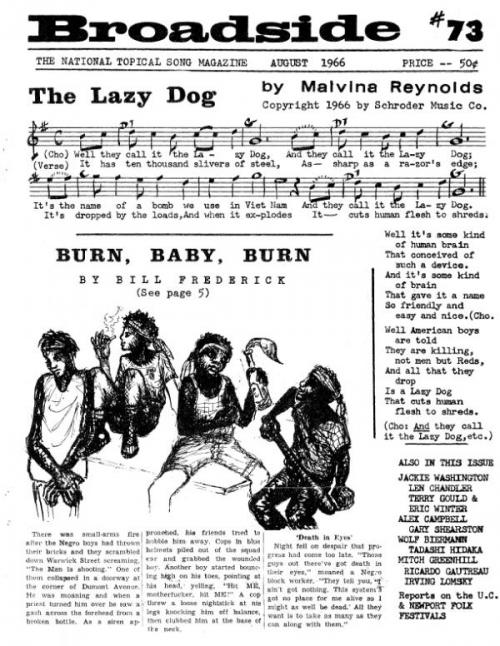
[1966]
Parole e musica di Malvina Reynolds
Una canzone inedita su disco. Il testo fu pubblicato sul n. 73 di Broadside Magazine, agosto 1966.
“Fuzz”, letteralmente peluria, è uno dei tanti termini in slang statunitense ad indicare la polizia...
Parole e musica di Malvina Reynolds
Una canzone inedita su disco. Il testo fu pubblicato sul n. 73 di Broadside Magazine, agosto 1966.
“Fuzz”, letteralmente peluria, è uno dei tanti termini in slang statunitense ad indicare la polizia...
It's enough to be young and walking two by two,
(Continues)
(Continues)
Contributed by Bernart Bartleby 2017/11/29 - 08:13
Like the Miller Grinds the Wheat

(1968)
Apparsa su 45 giri nel 1968 e pubblicata su Broadside Magazine #90 dell'aprile 1968
Come il mugnaio che macina la farina, la macchina della guerra ti stritolerà e farà di te un cadavere... o un assassino.
Apparsa su 45 giri nel 1968 e pubblicata su Broadside Magazine #90 dell'aprile 1968
Come il mugnaio che macina la farina, la macchina della guerra ti stritolerà e farà di te un cadavere... o un assassino.
We don't touch that machine
(Continues)
(Continues)
2016/10/20 - 22:35
Song Itineraries:
War in Viet Nam as seen from the U.S.
What's Goin' on Down There

[1964]
Parole e musica di Malvina Reynolds
Nel disco “Malvina Reynolds Sings the Truth” del 1967
Il 1964 è l’anno in cui il “Mississippi (was) Burning”, prendendo a prestito il titolo del bel film di Alan Parker del 1988, con Gene Hackman e Willem Dafoe.
Il 21 giugno del 1964 nella contea di Neshoba, Mississippi, sparirono nel nulla tre giovani attivisti per i diritti civili, due bianchi e un nero… I loro corpi furono ritrovati un mese e mezzo più tardi: erano stati sequestrati, linciati e frettolosamente sepolti. Si chiamavano James Chaney, Andrew Goodman e Michael Schwerner.
Responsabili dell’efferato crimine i componenti di una “mob” formata da poliziotti, membri del KKK e bianchi razzisti, in testa a tutti lo sceriffo della contea Lawrence Rainey e il referente locale del Klan Samuel Bowers.
Si vedano anche, per esempio, Goodman and Schwerner and Chaney, In the Mississippi River, Those Three Are On My Mind e He Was My Brother.
Parole e musica di Malvina Reynolds
Nel disco “Malvina Reynolds Sings the Truth” del 1967
Il 1964 è l’anno in cui il “Mississippi (was) Burning”, prendendo a prestito il titolo del bel film di Alan Parker del 1988, con Gene Hackman e Willem Dafoe.
Il 21 giugno del 1964 nella contea di Neshoba, Mississippi, sparirono nel nulla tre giovani attivisti per i diritti civili, due bianchi e un nero… I loro corpi furono ritrovati un mese e mezzo più tardi: erano stati sequestrati, linciati e frettolosamente sepolti. Si chiamavano James Chaney, Andrew Goodman e Michael Schwerner.
Responsabili dell’efferato crimine i componenti di una “mob” formata da poliziotti, membri del KKK e bianchi razzisti, in testa a tutti lo sceriffo della contea Lawrence Rainey e il referente locale del Klan Samuel Bowers.
Si vedano anche, per esempio, Goodman and Schwerner and Chaney, In the Mississippi River, Those Three Are On My Mind e He Was My Brother.
Nobody knows about,
(Continues)
(Continues)
Contributed by Bernart Bartleby 2015/8/19 - 16:33
Back Alley Surgery
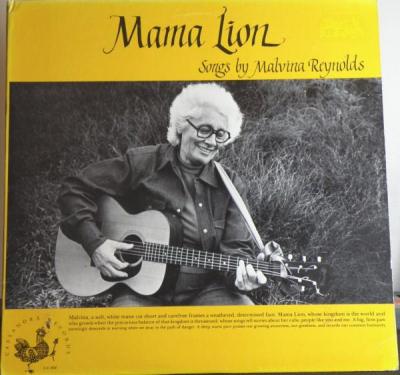
Una canzone che si trova solo in un disco postumo pubblicato nel 1980 ed intitolato "Mama Lion".
(B.B.)
(B.B.)
Supreme Court sits in Washington
(Continues)
(Continues)
2015/4/27 - 19:29
Song Itineraries:
Violence on Women: just like and worse than war
自衛隊に入ろう/ Jiéitai ni hairō

[1968]
Parole di 高田 渡 / Takada Wataru
Sulla melodia di Andorra (1962), canzone scritta da Malvina Reynolds con musica di Pete Seeger
Testo trovato su Songs for Fukushima, di Matthew Penney
Nel 1968 le folk songs divennero molto popolari in tutto il Giappone, a cominciare dalla regione di Kansai di cui erano originari molti studenti songwriters collegati alla sinistra pacifista americana e mondiale che lottava contro la guerra in Vietnam. Questa “Jiéitai ni hairō” (“Let’s Join The Self Defence Forces!”, “Uniamoci alla Forze di Autodifesa!”) era una ben mascherata satira anti-militarista nello stile musicale cosiddetto “enka”, nato nel periodo Meiji (1868–1912) proprio per esprimere in performance canore il dissenso politico. E come capitò in altri parti del mondo per altre canzoni satiriche dissimulate, anche con “Jiéitai ni hairō” le autorità ci misero un attimo a capire che non era affatto... (Continues)
Parole di 高田 渡 / Takada Wataru
Sulla melodia di Andorra (1962), canzone scritta da Malvina Reynolds con musica di Pete Seeger
Testo trovato su Songs for Fukushima, di Matthew Penney
Nel 1968 le folk songs divennero molto popolari in tutto il Giappone, a cominciare dalla regione di Kansai di cui erano originari molti studenti songwriters collegati alla sinistra pacifista americana e mondiale che lottava contro la guerra in Vietnam. Questa “Jiéitai ni hairō” (“Let’s Join The Self Defence Forces!”, “Uniamoci alla Forze di Autodifesa!”) era una ben mascherata satira anti-militarista nello stile musicale cosiddetto “enka”, nato nel periodo Meiji (1868–1912) proprio per esprimere in performance canore il dissenso politico. E come capitò in altri parti del mondo per altre canzoni satiriche dissimulate, anche con “Jiéitai ni hairō” le autorità ci misero un attimo a capire che non era affatto... (Continues)
みなさん方の中に
(Continues)
(Continues)
Contributed by Bernart Bartleby 2014/9/17 - 22:03
Song Itineraries:
No Nukes, War in Viet Nam as seen from Italy and from the rest of the world
God Bless the Grass
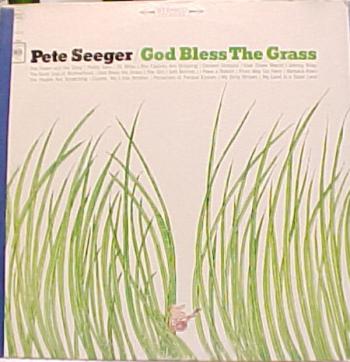
[1964]
Parole e musica di Malvina Reynolds.
Nel suo disco intitolato “Malvina Reynolds Sings the Truth”, pubblicato nel 1967 e poi riedito nel 2008.
La incise però prima di lei Pete Seeger, utilizzandola come titolo del suo album del 1966.
Una canzone dai significati molteplici, da quello ambientalista alla celebrazione del movimento per i diritti civili, di cui il crescere inarrestabile dell’erba è metafora… Ma soprattutto Malvina Reynolds scrisse queste strofe dopo l’assassinio del presidente John Kennedy, un trauma collettivo mai completamente rimarginato (come quello della guerra in Vietnam, di cui Kennedy fu peraltro uno degli iniziatori: “Abbiamo un problema: rendere credibile la nostra potenza. Il Vietnam è il posto giusto per dimostrarlo”, dichiarò in un’intervista nel 1961…)
Parole e musica di Malvina Reynolds.
Nel suo disco intitolato “Malvina Reynolds Sings the Truth”, pubblicato nel 1967 e poi riedito nel 2008.
La incise però prima di lei Pete Seeger, utilizzandola come titolo del suo album del 1966.
Una canzone dai significati molteplici, da quello ambientalista alla celebrazione del movimento per i diritti civili, di cui il crescere inarrestabile dell’erba è metafora… Ma soprattutto Malvina Reynolds scrisse queste strofe dopo l’assassinio del presidente John Kennedy, un trauma collettivo mai completamente rimarginato (come quello della guerra in Vietnam, di cui Kennedy fu peraltro uno degli iniziatori: “Abbiamo un problema: rendere credibile la nostra potenza. Il Vietnam è il posto giusto per dimostrarlo”, dichiarò in un’intervista nel 1961…)
God bless the grass that grows thru the crack.
(Continues)
(Continues)
Contributed by Bernart Bartleby 2014/8/6 - 11:54
Song Itineraries:
Racism and Slavery in the USA, War on Earth
The Bloody Neat

[1967]
Nella prima edizione di “Malvina Reynolds Sings the Truth”, poi riedito nel 2008.
Nella prima edizione di “Malvina Reynolds Sings the Truth”, poi riedito nel 2008.
Don't be so bloody neat,
(Continues)
(Continues)
Contributed by Bartleby 2012/1/19 - 09:28
The Money Crop
[1966]
Nell’album collettivo “Save The Children: Songs From the Hearts of Women (Women Strike for Peace)” del 1967. Presente anche in dischi successivi come “Malvina” (1972), “Ear to the Ground” (2000) e “Malvina Reynolds...Sings the Truth” (2008)
Nell’album collettivo “Save The Children: Songs From the Hearts of Women (Women Strike for Peace)” del 1967. Presente anche in dischi successivi come “Malvina” (1972), “Ear to the Ground” (2000) e “Malvina Reynolds...Sings the Truth” (2008)
Oh, money has its own way, and money has to grow,
(Continues)
(Continues)
Contributed by Bartleby 2012/1/19 - 09:16
If Peace Time Came

[1968]
Lyrics & Music by Malvina Reynolds
Album: Sings the Truth
Renewed 1996, a.k.a. "If Peacetime Came". Malvina was poor for a time as a kid when her father lost his business, so she isn't making light of being poor here. Instead, she is riffing on the idea that war is good for business..
Lyrics & Music by Malvina Reynolds
Album: Sings the Truth
Renewed 1996, a.k.a. "If Peacetime Came". Malvina was poor for a time as a kid when her father lost his business, so she isn't making light of being poor here. Instead, she is riffing on the idea that war is good for business..
If peace time came, and we all got poor,
(Continues)
(Continues)
Contributed by giorgio 2010/12/26 - 15:22
Ballad of Ella Mae
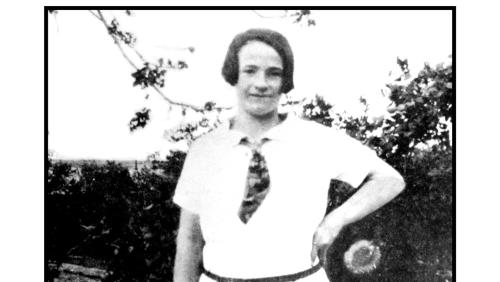
[1955]
Words and music by Malvina Reynolds
Canzone dedicata a Ella Mae Wiggins, sindacalista assassinata in Nord Carolina nel 1929 e autrice di alcune canzoni di lotta, fra le quali The Mill Mother's Lament.
Words and music by Malvina Reynolds
Canzone dedicata a Ella Mae Wiggins, sindacalista assassinata in Nord Carolina nel 1929 e autrice di alcune canzoni di lotta, fra le quali The Mill Mother's Lament.
I never could do for my children,
(Continues)
(Continues)
Contributed by The Lone Ranger 2010/5/20 - 10:46
The Judge Said

[1977]
Lyrics by Malvina Reynolds
Music: Sung to the tune of “When Johnny Comes Marching Home”
Album: Mama Lion [1980]
Lyrics by Malvina Reynolds
Music: Sung to the tune of “When Johnny Comes Marching Home”
Album: Mama Lion [1980]
In 1977 a decision by one Judge Simonson of Madison, Wisconsin, relieved some young men of responsibility for a sex crime they committed on the basis of rather dubious reasoning. This song was written by Malvina in response to his decision and contributed to a recall campaign against the judge who made highly inappropriate remarks excusing rape. The story was quickly picked up by the national news. Eventually Simonson was removed from the bench.
The judge said: « Screw 'em! -Boys, you're only human.
(Continues)
(Continues)
Contributed by giorgio 2010/4/29 - 08:58
Song Itineraries:
Violence on Women: just like and worse than war
Dialectic
[1960]
Lyrics and Music by Malvina Reynolds.
Album: Ear to the Ground
Lyrics and Music by Malvina Reynolds.
Album: Ear to the Ground
It's hard to believe that people live in such palaces,
(Continues)
(Continues)
Contributed by giorgio 2010/4/29 - 08:28
The Times I've Had
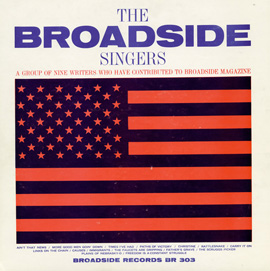
[1964]
Album “Broadside Ballads, Vol. 3: The Broadside Singers”, Folkways Records.
“The Broadside Singers” è stato un super-gruppo composto da alcuni dei songwriters che negli anni 60 e 70 furono tra i maggiori contributori della rivista “Broadside Magazine”, tra i quali Phil Ochs, Tom Paxton, Pete Seeger, Mark Spoelstra, Patrick Sky, Malvina Reynolds, Bob Dylan e Buffy Sainte-Marie…
In questo brano, l’autore Mark Spoelstra è accompagnato da Phil Ochs, voce e chitarra, e da Pete Seeger, banjo.
“This antiwar song was recorded in a Broadside Singers session with Phil Ochs leading the group. The song was written by Mark Spoelstra, who recalls this as one of his early compositions. He remembered traveling to Ohio for a concert with Rambling Jack Elliott. On the way back, they stopped for refreshments and ran across a group of young men in army fatigues talking about how they could not wait... (Continues)
Album “Broadside Ballads, Vol. 3: The Broadside Singers”, Folkways Records.
“The Broadside Singers” è stato un super-gruppo composto da alcuni dei songwriters che negli anni 60 e 70 furono tra i maggiori contributori della rivista “Broadside Magazine”, tra i quali Phil Ochs, Tom Paxton, Pete Seeger, Mark Spoelstra, Patrick Sky, Malvina Reynolds, Bob Dylan e Buffy Sainte-Marie…
In questo brano, l’autore Mark Spoelstra è accompagnato da Phil Ochs, voce e chitarra, e da Pete Seeger, banjo.
“This antiwar song was recorded in a Broadside Singers session with Phil Ochs leading the group. The song was written by Mark Spoelstra, who recalls this as one of his early compositions. He remembered traveling to Ohio for a concert with Rambling Jack Elliott. On the way back, they stopped for refreshments and ran across a group of young men in army fatigues talking about how they could not wait... (Continues)
Let me tell you 'bout the times I've had
(Continues)
(Continues)
Contributed by Alessandro 2010/4/2 - 13:35
This World

[1961]
Lyrics and Music by Malvina Reynolds renewed 1989 a.k.a. "Love It Like a Fool."
Album: Ear To The Ground: Topical Songs 1960-1978
Lyrics and Music by Malvina Reynolds renewed 1989 a.k.a. "Love It Like a Fool."
Album: Ear To The Ground: Topical Songs 1960-1978
Baby, I ain't afraid to die,
(Continues)
(Continues)
Contributed by giorgio 2010/2/7 - 12:09
The Story of Old Monroe
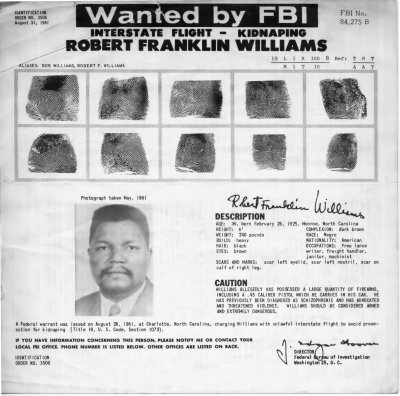
[1962]
Testo di Malvina Reynolds e di Pete Seeger, che scrisse la maggior parte delle strofe.
La melodia è quella di “Poor Ellen Smith”, ballata popolare risalente all’800.
Testo trovato su Broadside Magazine n.5 del maggio 1962.
Questa canzone è parecchio lunga, anche perché incredibile è la storia che racconta.
Monroe, North Carolina, 1958. Fuzzy Simpson e Hanover Thompson, due bambini di colore rispettivamente di sette e nove anni stanno giocando con una bambina bianca, loro coetanea. Il gioco è quello del “bacio” (sarà stato tipo ”naso in su, naso in giù, dai un bacio a chi vuoi tu” o qualcosa del genere…). La bimba dà un bacetto sulla guancia ad Hanover e poi, birbantella, corre a dirlo alla madre…. I due bambini furono arrestati dallo sceriffo locale, processati per tentato stupro e violazione delle leggi segregazioniste e condannati a stare in riformatorio fino ai 21 anni di... (Continues)
Testo di Malvina Reynolds e di Pete Seeger, che scrisse la maggior parte delle strofe.
La melodia è quella di “Poor Ellen Smith”, ballata popolare risalente all’800.
Testo trovato su Broadside Magazine n.5 del maggio 1962.
Questa canzone è parecchio lunga, anche perché incredibile è la storia che racconta.
Monroe, North Carolina, 1958. Fuzzy Simpson e Hanover Thompson, due bambini di colore rispettivamente di sette e nove anni stanno giocando con una bambina bianca, loro coetanea. Il gioco è quello del “bacio” (sarà stato tipo ”naso in su, naso in giù, dai un bacio a chi vuoi tu” o qualcosa del genere…). La bimba dà un bacetto sulla guancia ad Hanover e poi, birbantella, corre a dirlo alla madre…. I due bambini furono arrestati dallo sceriffo locale, processati per tentato stupro e violazione delle leggi segregazioniste e condannati a stare in riformatorio fino ai 21 anni di... (Continues)
Gather 'round us you Americans,
(Continues)
(Continues)
Contributed by Alessandro 2009/6/12 - 12:13
Song Itineraries:
Racism and Slavery in the USA
The Wise Men
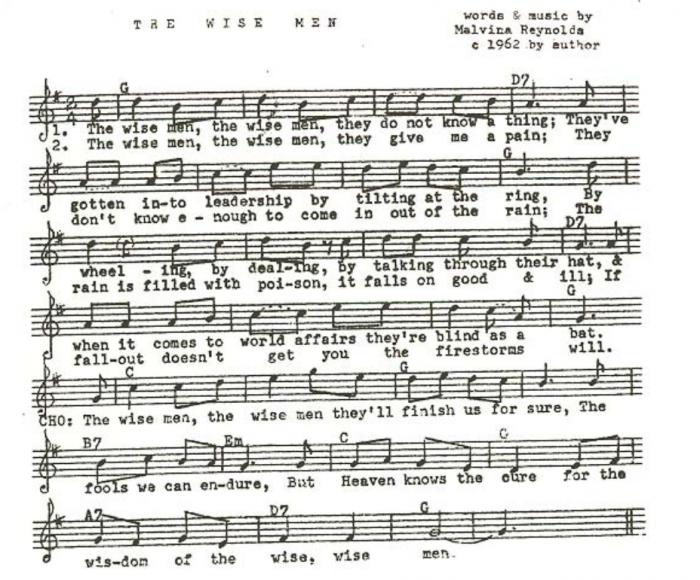
The wise men, the wise men, they do not know a thing;
(Continues)
(Continues)
Contributed by Alessandro 2009/6/12 - 10:32
The Tour of the Irish Fusiliers
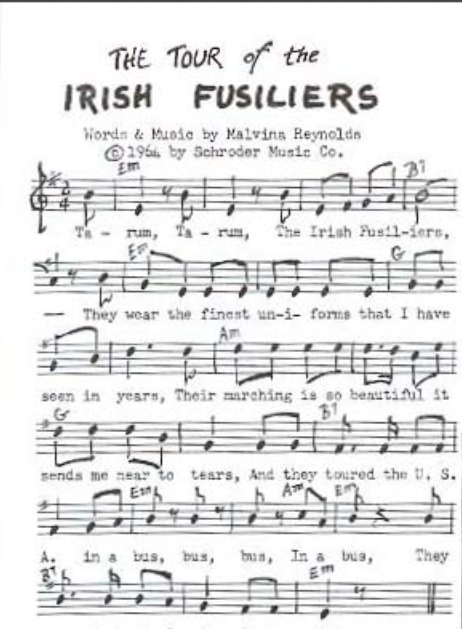
[1964]
Testo trovato su Broadside Magazine n.52 del novembre 1964.
Finalmente, proprio qui sulle CCG/AWS, ecco una canzone che spezza una lancia (o un fucile) in favore dei militari, sempre maledetti e bistratti su queste pagine! Era ora! Viva gli eroici Irish Fusiliers!!!
Quell'anno c'era un tour della banda de "The Royal Innskilling Fusiliers, the Royal Ulster Rifles and the Royal Irish Fusiliers". Dopo un concerto in Oklahoma, i baldi ragazzoni non ci vedevano dalla fame e si fecero accompagnare dall'autista del loro pullman - un afroamericano - a mangiare in un buon locale. Un centinaio di soldati irlandesi affamati avrebbero dovuto fruttare un bel gruzzolo al fortunato gestore del ristorante... Ma il tizio era un razzista e si rifiutò di servire l'autista di colore... Così gli eroici fucilieri irlandesi lasciarono tutti i loro piatti fumanti sul tavolo e, ordinatamente e militarmente, uscirono tutti e 100 dal locale...
Testo trovato su Broadside Magazine n.52 del novembre 1964.
Finalmente, proprio qui sulle CCG/AWS, ecco una canzone che spezza una lancia (o un fucile) in favore dei militari, sempre maledetti e bistratti su queste pagine! Era ora! Viva gli eroici Irish Fusiliers!!!
Quell'anno c'era un tour della banda de "The Royal Innskilling Fusiliers, the Royal Ulster Rifles and the Royal Irish Fusiliers". Dopo un concerto in Oklahoma, i baldi ragazzoni non ci vedevano dalla fame e si fecero accompagnare dall'autista del loro pullman - un afroamericano - a mangiare in un buon locale. Un centinaio di soldati irlandesi affamati avrebbero dovuto fruttare un bel gruzzolo al fortunato gestore del ristorante... Ma il tizio era un razzista e si rifiutò di servire l'autista di colore... Così gli eroici fucilieri irlandesi lasciarono tutti i loro piatti fumanti sul tavolo e, ordinatamente e militarmente, uscirono tutti e 100 dal locale...
Ta-rum, ta-rum, the Irish Fusiliers,
(Continues)
(Continues)
Contributed by Alessandro 2009/6/11 - 14:45
Song Itineraries:
Racism and Slavery in the USA
Thirty-Three Dollars

[1966]
Testo trovato su Broadside Magazine n.79 del febbraio/marzo 1967.
33 dollari. Era l'ammontare dell'indennizzo che l'esercito statunitense riconosceva nel 1966 per ogni civile vietnamita "accidentalmente" ucciso nel corso di operazioni militari... Quanto costavano già allora i "danni collaterali"!
Testo trovato su Broadside Magazine n.79 del febbraio/marzo 1967.
33 dollari. Era l'ammontare dell'indennizzo che l'esercito statunitense riconosceva nel 1966 per ogni civile vietnamita "accidentalmente" ucciso nel corso di operazioni militari... Quanto costavano già allora i "danni collaterali"!
Bargain day in the battle zone,
(Continues)
(Continues)
Contributed by Alessandro 2009/6/11 - 14:21
Song Itineraries:
War in Viet Nam as seen from the U.S.
Singin' Jesus
[1964]
Album "Malvina Reynolds Sings the Truth" (1967)
Testo trovato su Broadside Magazine n.53 del dicembre 1964.
Album "Malvina Reynolds Sings the Truth" (1967)
Testo trovato su Broadside Magazine n.53 del dicembre 1964.
Let me tell you 'bout singin Jesus,
(Continues)
(Continues)
Contributed by Alessandro 2009/6/11 - 14:11
Ring Like a Bell
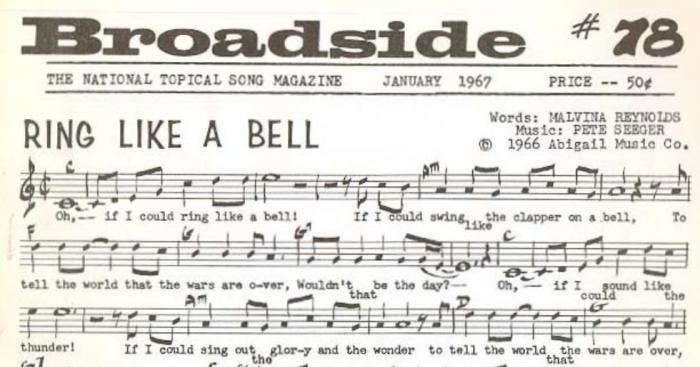
[1966]
Words by Malvina Reynolds
Music by Pete Seeger
Testo trovato su Broadside Magazine n.78 del gennaio 1967.
Words by Malvina Reynolds
Music by Pete Seeger
Testo trovato su Broadside Magazine n.78 del gennaio 1967.
Oh, if I could ring like a bell!
(Continues)
(Continues)
Contributed by Alessandro 2009/6/11 - 13:59
Power Plant Reggae
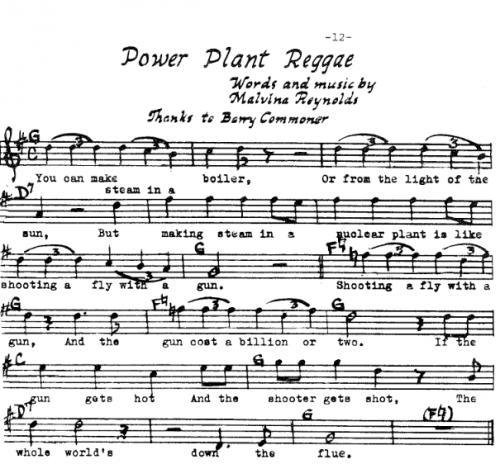
You can make steam in a boiler,
(Continues)
(Continues)
Contributed by Alessandro 2009/6/11 - 13:54
The Man Says Jump

[1965]
Testo pubblicato su “Broadside Magazine” n.68 del marzo 1968.
Testo pubblicato su “Broadside Magazine” n.68 del marzo 1968.
Well the man says jump,
(Continues)
(Continues)
Contributed by Alessandro 2009/6/11 - 13:39
Leave My Van Allen Belt Alone
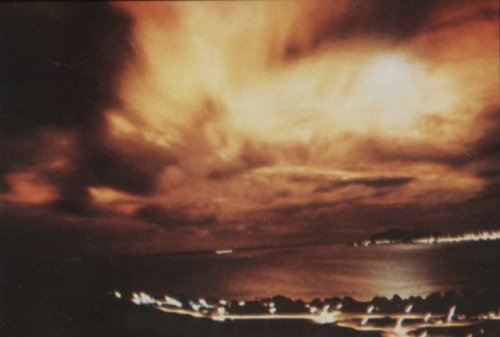
[1962]
Testo trovato su Broadside Magazine n.6 del 1962.
Le “fasce di Van Allen” sono due enormi masse di particelle cariche che circondano il nostro pianeta, trattenute dal campo magnetico terrestre. I campi energetici generati da queste masse costituiscono un pericolo per i satelliti perché possono danneggiarne i pannelli solari, i circuiti integrati e i sensori. Oggi si pensa ad una soluzione del problema attraverso il dislocamento di “trappole” elettrostatiche per imprigionare gli elettroni che compongono queste masse e renderle così inoffensive… Ma tra la fine degli anni ’50 e l’inizio dei ‘60, in piena Guerra Fredda e relativa escalation atomica, e quando nemmeno si conosceva bene (anche se Hiroshima e Nagasaki la lasciavano chiaramente intuire) la pericolosità delle radiazioni nucleari sul medio e lungo periodo, gli scienziati militari di USA e URSS – assassini irresponsabili testediminkia... (Continues)
Testo trovato su Broadside Magazine n.6 del 1962.
Le “fasce di Van Allen” sono due enormi masse di particelle cariche che circondano il nostro pianeta, trattenute dal campo magnetico terrestre. I campi energetici generati da queste masse costituiscono un pericolo per i satelliti perché possono danneggiarne i pannelli solari, i circuiti integrati e i sensori. Oggi si pensa ad una soluzione del problema attraverso il dislocamento di “trappole” elettrostatiche per imprigionare gli elettroni che compongono queste masse e renderle così inoffensive… Ma tra la fine degli anni ’50 e l’inizio dei ‘60, in piena Guerra Fredda e relativa escalation atomica, e quando nemmeno si conosceva bene (anche se Hiroshima e Nagasaki la lasciavano chiaramente intuire) la pericolosità delle radiazioni nucleari sul medio e lungo periodo, gli scienziati militari di USA e URSS – assassini irresponsabili testediminkia... (Continues)
The sky is full of hardware, it's shot up ev'ry day,
(Continues)
(Continues)
Contributed by Alessandro 2009/6/11 - 12:17
The Lazy Dog

[1966]
Words and music by Malvina Reynolds.
Testo trovato su Broadside Magazine n.73 dell’agosto 1966.
“Lazy Dog” (“Cane Pigro”, nel fantasioso quanto agghiacciante gergo militare) è il nome dell’antenata delle attuali bombe a frammentazione (cluster bombs). Progettata all’inizio della seconda guerra mondiale da un pool di imprese belliche (Delco Products Corporation, F&F Mold and Die Works Inc., Haines Designed Products e Master Vibrator Company), fu testata e sviluppata durante la guerra di Corea ed il conflitto in Vietnam.
(fonte: en.wikipedia)
Words and music by Malvina Reynolds.
Testo trovato su Broadside Magazine n.73 dell’agosto 1966.
“Lazy Dog” (“Cane Pigro”, nel fantasioso quanto agghiacciante gergo militare) è il nome dell’antenata delle attuali bombe a frammentazione (cluster bombs). Progettata all’inizio della seconda guerra mondiale da un pool di imprese belliche (Delco Products Corporation, F&F Mold and Die Works Inc., Haines Designed Products e Master Vibrator Company), fu testata e sviluppata durante la guerra di Corea ed il conflitto in Vietnam.
(fonte: en.wikipedia)
Well they call it the Lazy Dog,
(Continues)
(Continues)
Contributed by Alessandro 2009/6/9 - 14:39
Instant Sentence (Talking Law and Order Blues)
[1967]
Words and music by Malvina Reynolds.
Testo trovato su Broadside Magazine n.86 del novembre 1967.
La canzone si riferisce alle manifestazioni contro la guerra in Vietnam ed alla consuetudine da parte delle “forze dell’ordine” di attaccarle sempre con estrema violenza.
Words and music by Malvina Reynolds.
Testo trovato su Broadside Magazine n.86 del novembre 1967.
La canzone si riferisce alle manifestazioni contro la guerra in Vietnam ed alla consuetudine da parte delle “forze dell’ordine” di attaccarle sempre con estrema violenza.
[spoken] Well the boy won't move,
(Continues)
(Continues)
Contributed by Alessandro 2009/6/9 - 14:03
Song Itineraries:
War in Viet Nam: Student Protest and Repression
Did You Know?
[1965]
Words and music by Malvina Reynolds.
Testo trovato su Broadside Magazine n.59 del giugno 1965.
Words and music by Malvina Reynolds.
Testo trovato su Broadside Magazine n.59 del giugno 1965.
Did you know, did you know,
(Continues)
(Continues)
Contributed by Alessandro 2009/6/9 - 13:40
Boraxo
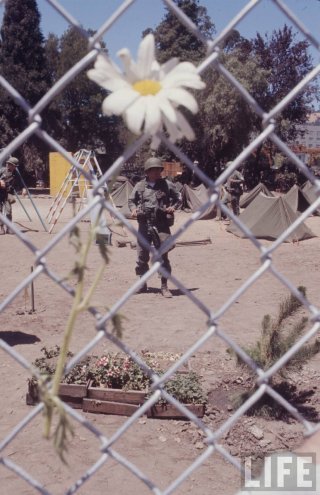
[1969]
Lyrics and music by Malvina Reynolds
Testo e musica di Malvina Reynolds
A Berkeley, vicino all’Università della California, c’è una vasta area verde chiamata People’s Park.
Il parco fu voluto dall’Università, ma nel 1967 furono i commercianti, i residenti e gli studenti a farne una “free speach area”, un polmone verde che servisse però anche a luogo d’incontro e di libera discussione per la cittadinanza e gli studenti. Nel 1969 più di 1000 volontari allestirono in breve tempo il People’s Park, senza che le autorità locali e universitarie vi si opponessero.
Ma l’allora governatore della California, il futuro presidente Ronald Reagan, pensava che quel parco fosse solo il luogo d’incontro per “simpatizzanti comunisti, contestatori e sessualmente deviati”. E il 15 maggio 1969 mandò la polizia a riprendersi People’s Park. Fra i poliziotti si distinserò per particolare ferocia i cosiddetti... (Continues)
Lyrics and music by Malvina Reynolds
Testo e musica di Malvina Reynolds
A Berkeley, vicino all’Università della California, c’è una vasta area verde chiamata People’s Park.
Il parco fu voluto dall’Università, ma nel 1967 furono i commercianti, i residenti e gli studenti a farne una “free speach area”, un polmone verde che servisse però anche a luogo d’incontro e di libera discussione per la cittadinanza e gli studenti. Nel 1969 più di 1000 volontari allestirono in breve tempo il People’s Park, senza che le autorità locali e universitarie vi si opponessero.
Ma l’allora governatore della California, il futuro presidente Ronald Reagan, pensava che quel parco fosse solo il luogo d’incontro per “simpatizzanti comunisti, contestatori e sessualmente deviati”. E il 15 maggio 1969 mandò la polizia a riprendersi People’s Park. Fra i poliziotti si distinserò per particolare ferocia i cosiddetti... (Continues)
It's all right, it's all right,
(Continues)
(Continues)
Contributed by Alessandro 2009/6/9 - 11:47
Song Itineraries:
War in Viet Nam: Student Protest and Repression
Are You Walking There for Me?

[1964]
Words and music by Malvina Reynolds
Testo pubblicato su Broadside Magazine n.48 del luglio 1964.
Nel giugno del 1964 un coordinamento fra le principali organizzazioni di lotta per il riconoscimento dei diritti civili iniziò una campagna, chiamata “Mississippi Freedom Summer”, per registrare al voto il maggior numero possibile di afroamericani ai quali, fino a quel momento, nello stato più razzista del sud, era impedito di esercitare il diritto a scegliere i propri rappresentanti.
Accanto agli attivisti locali, più di 1000 volontari vennero dal nord per sostenere la campagna: molti di loro erano giovani, molti erano bianchi. C’erano anche sacerdoti e seminaristi cristiani, così come rabbini e studenti di fede ebraica.
Durante la “Mississippi Freedom Summer”, il KKK e le altre organizzazioni segregazioniste e suprematiste chiamarono a raccolta i loro accoliti e diedero corso ad... (Continues)
Words and music by Malvina Reynolds
Testo pubblicato su Broadside Magazine n.48 del luglio 1964.
Nel giugno del 1964 un coordinamento fra le principali organizzazioni di lotta per il riconoscimento dei diritti civili iniziò una campagna, chiamata “Mississippi Freedom Summer”, per registrare al voto il maggior numero possibile di afroamericani ai quali, fino a quel momento, nello stato più razzista del sud, era impedito di esercitare il diritto a scegliere i propri rappresentanti.
Accanto agli attivisti locali, più di 1000 volontari vennero dal nord per sostenere la campagna: molti di loro erano giovani, molti erano bianchi. C’erano anche sacerdoti e seminaristi cristiani, così come rabbini e studenti di fede ebraica.
Durante la “Mississippi Freedom Summer”, il KKK e le altre organizzazioni segregazioniste e suprematiste chiamarono a raccolta i loro accoliti e diedero corso ad... (Continues)
Are you walking there for me?
(Continues)
(Continues)
Contributed by Alessandro 2009/6/9 - 10:16
Ain't That Fine

Words and music by Malvina Reynolds; copyright 1964 Schroder Music Company, renewed 1992.
This song is based on a United Press report of nine racist bombers getting suspended sentences in Mississippi, though they pled guilty or nolo contendre to charges of illegal use of dynamite or conspiracy. "Sixteen Negro-owned buildings have been bombed and several churches burned in the McComb area since last April." The judge said they were "unduly provoked" by civil rights workers (San Francisco Chronicle, October 23, 1964).
Canzone inedita
(B.B.)
This song is based on a United Press report of nine racist bombers getting suspended sentences in Mississippi, though they pled guilty or nolo contendre to charges of illegal use of dynamite or conspiracy. "Sixteen Negro-owned buildings have been bombed and several churches burned in the McComb area since last April." The judge said they were "unduly provoked" by civil rights workers (San Francisco Chronicle, October 23, 1964).
Canzone inedita
(B.B.)
Well, they're all out on probation, Ain't that fine,
(Continues)
(Continues)
Contributed by Alessandro 2008/10/29 - 09:53
Song Itineraries:
Racism and Slavery in the USA
Gatsten

[2002]
Text: Jan Hammarlund
till en melodi av Malvina Reynolds
Testo di Jan Hammarlund
su una melodia di Malvina Reynolds
Album: Grässträn och gatsten (SCD 06)
Questa pagina è stata appositamente preparata per il concerto di Jan Hammarlund a Firenze, CPA Centro Popolare Autogestito Firenze Sud, 13 febbraio 2008.
Efter EUs toppmöte i Göteborg 2001 har ett sextiotal personer dömts till i genomsnitt 9 månaders fängelse, straffsatser som tiodubblats i jämförelse med tidigare. De flesta av de dömda deltog INTE i någon stenkastning och var INTE med i upploppet på Avenyn. Trots detta har filmer från Avenyn visats och gatstenar suggestivt skickats runt i en mängd rättegångar som inte handlade om varken det ena eller det andra. Inga poliser har fällts och endast fem har åtalats, dock ingen av dem som sköt Hannes Westberg så att han svävade mellan liv och död i flera dygn, och inte heller någon... (Continues)
Text: Jan Hammarlund
till en melodi av Malvina Reynolds
Testo di Jan Hammarlund
su una melodia di Malvina Reynolds
Album: Grässträn och gatsten (SCD 06)
Questa pagina è stata appositamente preparata per il concerto di Jan Hammarlund a Firenze, CPA Centro Popolare Autogestito Firenze Sud, 13 febbraio 2008.
Efter EUs toppmöte i Göteborg 2001 har ett sextiotal personer dömts till i genomsnitt 9 månaders fängelse, straffsatser som tiodubblats i jämförelse med tidigare. De flesta av de dömda deltog INTE i någon stenkastning och var INTE med i upploppet på Avenyn. Trots detta har filmer från Avenyn visats och gatstenar suggestivt skickats runt i en mängd rättegångar som inte handlade om varken det ena eller det andra. Inga poliser har fällts och endast fem har åtalats, dock ingen av dem som sköt Hannes Westberg så att han svävade mellan liv och död i flera dygn, och inte heller någon... (Continues)
Gatsten, gatsten, vilken kraft den har
(Continues)
(Continues)
Contributed by Riccardo Venturi 2008/2/13 - 18:27
We are Gentle Angry Women (Singing For Our Lives)
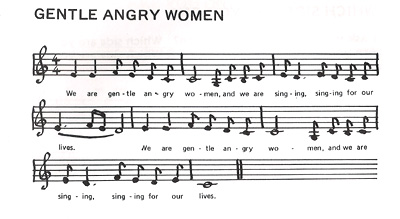
The Greenham Common Women's Peace Camp Songbook
Greenham Common Women's Peace Camp was a peace camp established to protest at nuclear weapon being sited at RAF Greenham Common in Berkshire, England. The camp began in September 1981 after a Welsh group called "Women for Life on Earth" arrived at Greenham to protest against the decision of the Government to allow cruise missiles to be based there.
On 1 April 1983, tens of thousands of protestors formed a 14 mile human chain from Greenham to the Aldermaston nuclear power station and the ordnance factory at Burghfield.
On 4 April 1984, the women were evicted from the Common by Newbury District Council. However by nightfall the women all returned to reform the camp.
The last missiles left the camp in 1991 but the camp remained in place until 2000 after protestors won the right to house a memorial on the site.
en.wikipedia
Il Campo della... (Continues)
Greenham Common Women's Peace Camp was a peace camp established to protest at nuclear weapon being sited at RAF Greenham Common in Berkshire, England. The camp began in September 1981 after a Welsh group called "Women for Life on Earth" arrived at Greenham to protest against the decision of the Government to allow cruise missiles to be based there.
On 1 April 1983, tens of thousands of protestors formed a 14 mile human chain from Greenham to the Aldermaston nuclear power station and the ordnance factory at Burghfield.
On 4 April 1984, the women were evicted from the Common by Newbury District Council. However by nightfall the women all returned to reform the camp.
The last missiles left the camp in 1991 but the camp remained in place until 2000 after protestors won the right to house a memorial on the site.
en.wikipedia
Il Campo della... (Continues)
We are gentle angry women
(Continues)
(Continues)
Contributed by CCG/AWS Staff 2008/1/22 - 13:32
Peace Isn't Treason

[1965]
Lyrics and music by Malvina Reynolds
Testo e musica di Malvina Reynolds
Lyrics and music by Malvina Reynolds
Testo e musica di Malvina Reynolds
Peace isn't treason, Peace is good reason,
(Continues)
(Continues)
Contributed by daniela -k.d.- 2007/10/28 - 10:44
A Short History of Warfare
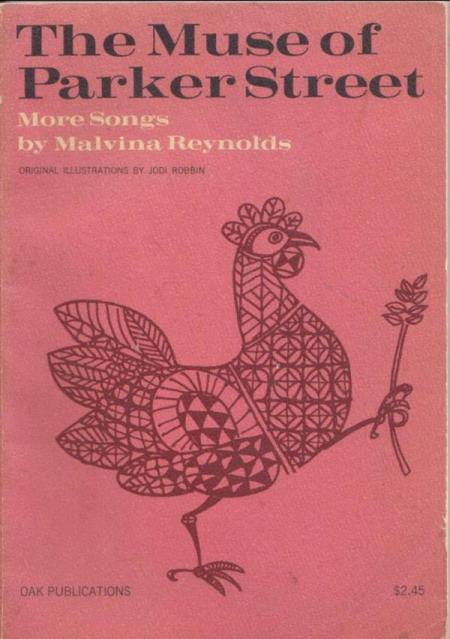
[1966]
Lyrics and music by Malvina Reynolds
Testo e musica di Malvina Reynolds
Nel songbook "The Muse of Parker Street: More Songs by Malvina Reynolds" (1967).
Il testo fu pubblicato sul n.75 del Broadside Magazine, 1966.
Non credo che il brano sia mai stato inciso dall'autrice.
(B.B.)
Lyrics and music by Malvina Reynolds
Testo e musica di Malvina Reynolds
Nel songbook "The Muse of Parker Street: More Songs by Malvina Reynolds" (1967).
Il testo fu pubblicato sul n.75 del Broadside Magazine, 1966.
Non credo che il brano sia mai stato inciso dall'autrice.
(B.B.)
Back in the Middle Ages,
(Continues)
(Continues)
Contributed by daniela -k.d- 2007/10/28 - 10:34
Playing War

[1964]
Lyrics and music by Malvina Reynolds
Testo e musica di Malvina Reynolds
Lyrics and music by Malvina Reynolds
Testo e musica di Malvina Reynolds
Apparently written in response to the increasing play of war toy ads on children-oriented television programming.
There's a nameless war in Vietnam,
(Continues)
(Continues)
Contributed by daniela -k.d.- 2007/10/28 - 10:30
Song Itineraries:
War in Viet Nam as seen from the U.S.
Only A War
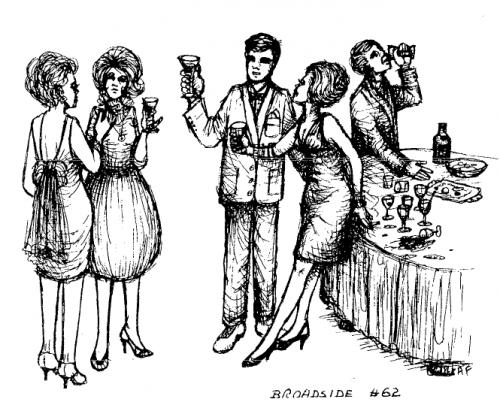
[1965]
Lyrics and music by Malvina Reynolds
Testo e musica di Malvina Reynolds
Pubblicata su Broadside #62
Lyrics and music by Malvina Reynolds
Testo e musica di Malvina Reynolds
Pubblicata su Broadside #62
It's only a war, another war,
(Continues)
(Continues)
Contributed by daniela -k.d.- 2007/10/28 - 10:26
Song Itineraries:
War in Viet Nam as seen from the U.S.
I Believe

[1965]
Lyrics and music by Malvina Reynolds
Testo e musica di Malvina Reynolds
Lyrics and music by Malvina Reynolds
Testo e musica di Malvina Reynolds
I believe, I believe,
(Continues)
(Continues)
Contributed by daniela -k.d.- 2007/10/28 - 10:16
Song Itineraries:
War in Viet Nam as seen from the U.S.
From Way Up Here

[1962]
Testo di Malvina Reynolds
Musica di Pete Seeger
Lyrics by Malvina Reynolds
Music by Pete Seeger
Testo di Malvina Reynolds
Musica di Pete Seeger
Lyrics by Malvina Reynolds
Music by Pete Seeger
From way up here the earth looks very small,
(Continues)
(Continues)
Contributed by Riccardo Venturi 2006/1/3 - 22:04
What Have They Done To The Rain?

Swedish Version by Roland von Malmborg
Testo ripreso da/Lyrics of this versione available at questa pagina/this page
Testo ripreso da/Lyrics of this versione available at questa pagina/this page
BARA LITE REGN
(Continues)
(Continues)
Contributed by Riccardo Venturi 2006/1/2 - 21:52
Where Have all the Flowers Gone

CATALANO /CATALAN/CATALAN [1]
Ramon Casajoana / Grup de Folk
Versione catalana (cantabile) da questa pagina
(Singable) Catalan version, from this page
Version catalane (chantable), d'après cette page
NB: La pagina contiene anche gli accordi.
Note: The page also includes accords.
Note: La page contient aussi les accords.
Si tratta della versione “standard” in lingua catalana: risale al 1967 è opera di Ramon Casajoana, un prolifico cantautore e traduttore catalano noto per aver fatto parte attiva del Grup de Folk, gruppo aperto di formazione variabile che, durante il periodo dell' "Aperturismo" franchista, attorno al 1965/68, tentò con successo di far conoscere la grande canzone americana del periodo in lingua catalana. Del gruppo fecero parte, oltre a Ramon Casajoana (che si occupava delle traduzioni dei testi), anche Xesco Boix, Jaume Arnella, la band Falsterbo 3 (nella quale militava... (Continues)
Ramon Casajoana / Grup de Folk
Versione catalana (cantabile) da questa pagina
(Singable) Catalan version, from this page
Version catalane (chantable), d'après cette page
NB: La pagina contiene anche gli accordi.
Note: The page also includes accords.
Note: La page contient aussi les accords.
Si tratta della versione “standard” in lingua catalana: risale al 1967 è opera di Ramon Casajoana, un prolifico cantautore e traduttore catalano noto per aver fatto parte attiva del Grup de Folk, gruppo aperto di formazione variabile che, durante il periodo dell' "Aperturismo" franchista, attorno al 1965/68, tentò con successo di far conoscere la grande canzone americana del periodo in lingua catalana. Del gruppo fecero parte, oltre a Ramon Casajoana (che si occupava delle traduzioni dei testi), anche Xesco Boix, Jaume Arnella, la band Falsterbo 3 (nella quale militava... (Continues)
QUE' SE N'HA FET D'AQUELLES FLORS?
(Continues)
(Continues)
Contributed by Riccardo Venturi 2005/3/28 - 11:35
×
![]()




